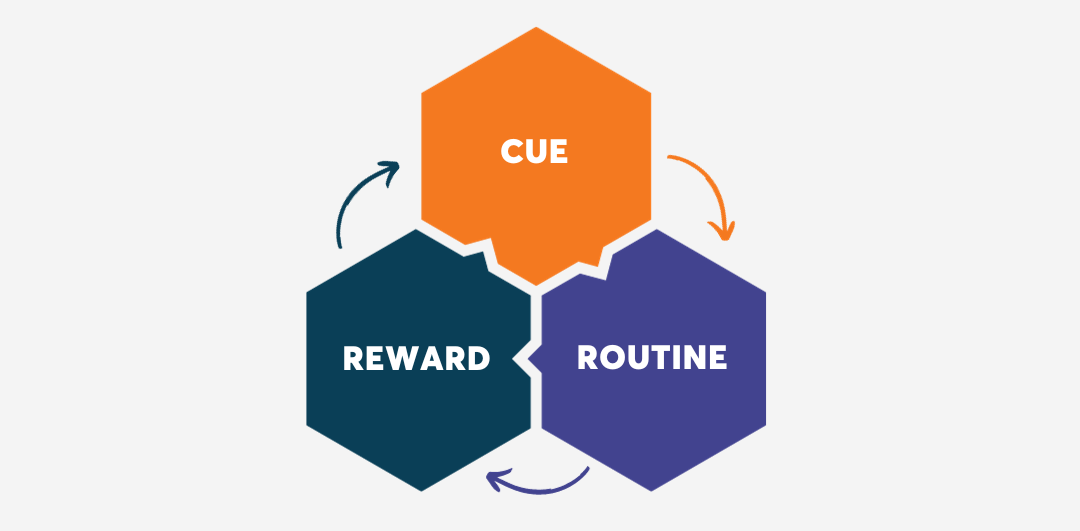
Games are great at building habits. Sometimes too great. Whether it’s daily rewards in Animal Crossing or the gamified streak pressure in Duolingo, designers are masters of keeping us coming back. But where do we draw the line between clever design and outright exploitation?
When done right, habit formation keeps players engaged in meaningful ways. But when misused, it can push people into compulsive loops that feel more like obligations. In this article, we’ll break down the psychology of habit formation and explore games that apply it well.
🧠 The Psychology of Habits

At its core, habit formation follows a simple loop:
Cue – A trigger that prompts the behavior.
Routine – The behavior itself.
Reward – A positive reinforcement that strengthens the habit.
This concept is well-explored in books like Atomic Habits by James Clear and Thinking, Fast and Slow by Daniel Kahneman. They explain how small behaviors, when repeated consistently, become habits—and how we can apply these insights.
Key Principles for Habit Formation in Games
Make It Obvious – Cues like login bonuses, alerts, and progress bars remind players to engage.
Make It Attractive – Reward structures, compelling mechanics, strong narratives, and social elements enhance motivation.
Make It Easy – Smooth interactions, like one-tap actions or contextual triggers, can help reduce resistance. Our brains are wired for efficiency, or simply kinda lazy, so we naturally gravitate toward low-effort, high-reward actions.
Make It Satisfying – Immediate feedback, polished SFX/VFX, and well-timed incentives reinforce continued play.
So how do we stay on the right side of this balance? A player-first mentality.
Simply asking “Is this good for the player, or just for the company?” makes all the difference.

✅ Good Applications of These Concepts
Some games build habits in ways that feel natural and fulfilling rather than manipulative. The difference lies in intent—whether the mechanics enhance player enjoyment or push behaviors that only benefit the business.
Animal Crossing: New Horizons – Encourages daily play through small, satisfying tasks and villager interactions. No harsh penalties for missing a day.
Pokémon GO – Rewards outdoor activity and social interaction through daily streaks, limited events, and rare Pokémon encounters.
Hay Day – Encourages short, flexible play sessions, creating a satisfying routine without trapping players in an endless cycle.
Duolingo – Not a game but it uses gamified streaks and friendly challenges to build learning habits without harsh penalties. (Though recently, mascot reactions and notifications have started pushing the limits.)
💡 The devil is in the details. These same mechanics can be harmful if applied in ways that mislead players into behaviors they wouldn’t otherwise choose.

⚠️ “Bad Applications” of These Concepts
Not all habit-forming game design is ethical. Some games employ dark patterns (psychological tricks that create compulsive behaviors at the expense of player well-being) to boost their results. The difference isn’t always in the mechanic itself, but in how it’s applied.
FOMO-Based Limited-Time Events – Many live-service games introduce events with exclusive rewards that create urgency. While occasional events can be exciting, an endless cycle of time-limited content pressures players into logging in constantly for fear of missing out.
Energy and Wait Timers – These mechanics slow progression unless players pay to speed things up, creating artificial frustration. However, not all implementations are inherently bad, some games use timers fairly to pace gameplay and prevent burnout. The problem arises when waiting is designed to frustrate or force a pay wall rather than naturally balance the experience.
Endless Progression – Some games ensure that there’s always another milestone just out of reach, keeping players engaged longer than they intended—and often without meaningful payoffs.
📝 Final Notes
Before implementing habit-forming mechanics, we should always ask: Is this loop enhancing the player’s experience, or just maximizing engagement for the sake of revenue?
Habit-forming design isn’t the problem. Thoughtless design is. When we put the player first we don’t just build engagement, we build trust. 😊
Wanna Learn More?
Here are some fantastic resources for you:



Cool Analysis and breakdown!
What I really find interesting is how Games can instill habits like persistence and goal-setting, very valuable for learning.
For instance, games that teach coding basics (7 Billion Humans, Opus Magnum) are fostering computational thinking. However... the transfer to real-world skills depends the guidance or use afterwards.
E.g. For kids there is our parental guidance, as without clear connections to the practical, kids may only develop habits tied to virtual rewards rather than tangible lessons that can help them in the future.
Take care & Keep Writing!
Ive never thought about this as deeply and i see your point. What are your thoughts on games (mobile specifically) that have events that last a month, but require daily login to receive items to obtain said event reward?